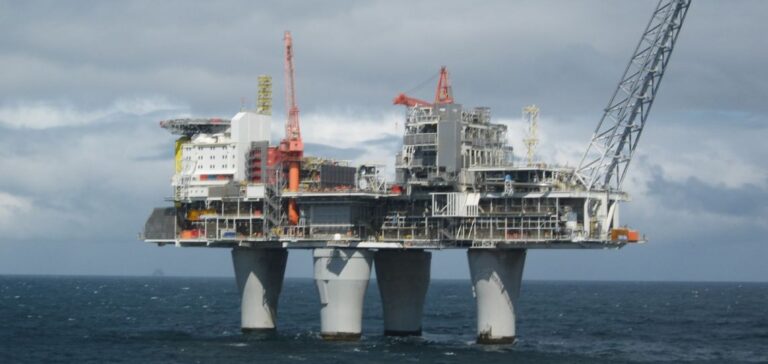The Court of Session in Scotland has overturned the licenses granted by British authorities to oil giants Shell and Equinor to develop two North Sea projects. The ruling came after Greenpeace and the Uplift organization contested the licenses, arguing that the approvals were granted unlawfully because they did not account for the indirect greenhouse gas emissions generated by the projects. The two companies will now need to submit new applications and reassess the environmental impact of their projects.
THE AFFECTED PROJECTS
The Jackdaw gas field, located 250 km off the Scottish coast, was granted its approval in 2022. Shell, the owner of the project, had invested £800 million in its development and planned to begin production this year. On the other hand, Equinor, operating the Rosebank oil field, had seen its project approved in 2023. This field is considered the largest untapped oil reserve in the UK, with reserves estimated at 300 million barrels of oil. Drilling was scheduled to start between 2026 and 2030.
REACTIONS FROM SECTOR STAKEHOLDERS
Shell expressed disappointment, highlighting that Jackdaw would be an essential contributor to the UK’s gas supply, capable of heating 1.4 million homes. The company called for swift action to allow operators to continue developing their North Sea projects. Equinor, for its part, welcomed the court’s decision, noting that the annulment would allow the company to continue working on the Rosebank project while awaiting new approvals and re-evaluating greenhouse gas emissions according to updated environmental guidelines.
POLITICAL AND LEGISLATIVE IMPLICATIONS
This ruling comes amid shifting political dynamics in the UK. The recently elected Labour government announced in August that it would not defend these projects in court. The Ministry of Energy Security and Net Zero has indicated it will revise its environmental guidelines in response to the Supreme Court ruling. Prime Minister Keir Starmer also reaffirmed the UK’s commitment to reducing greenhouse gas emissions by 81% by 2035 compared to 1990 levels.






















